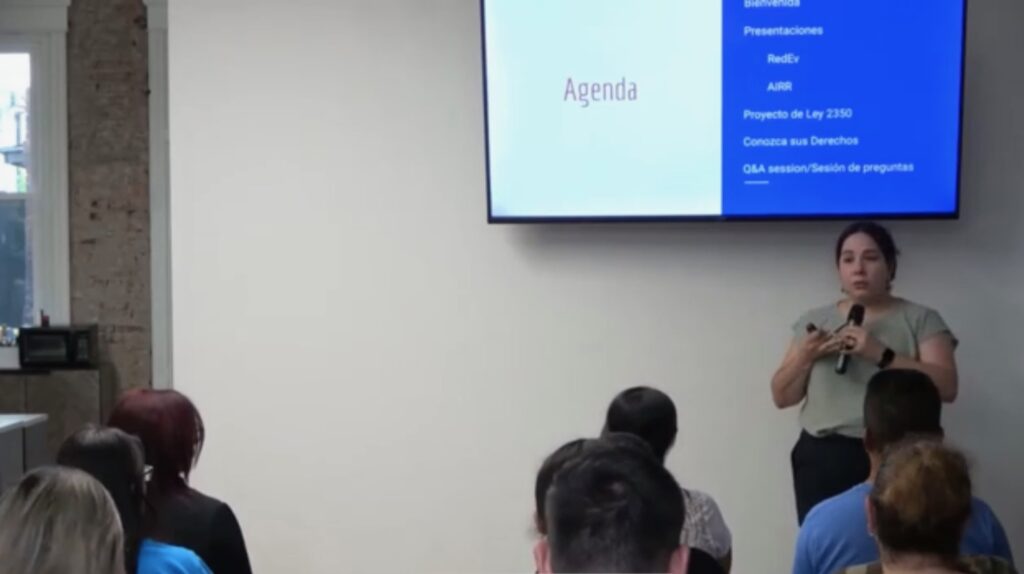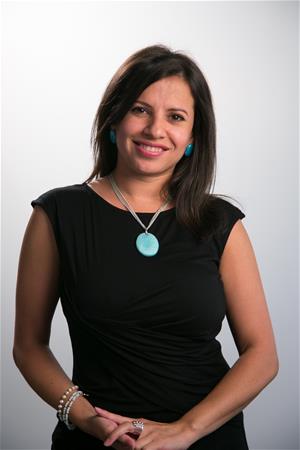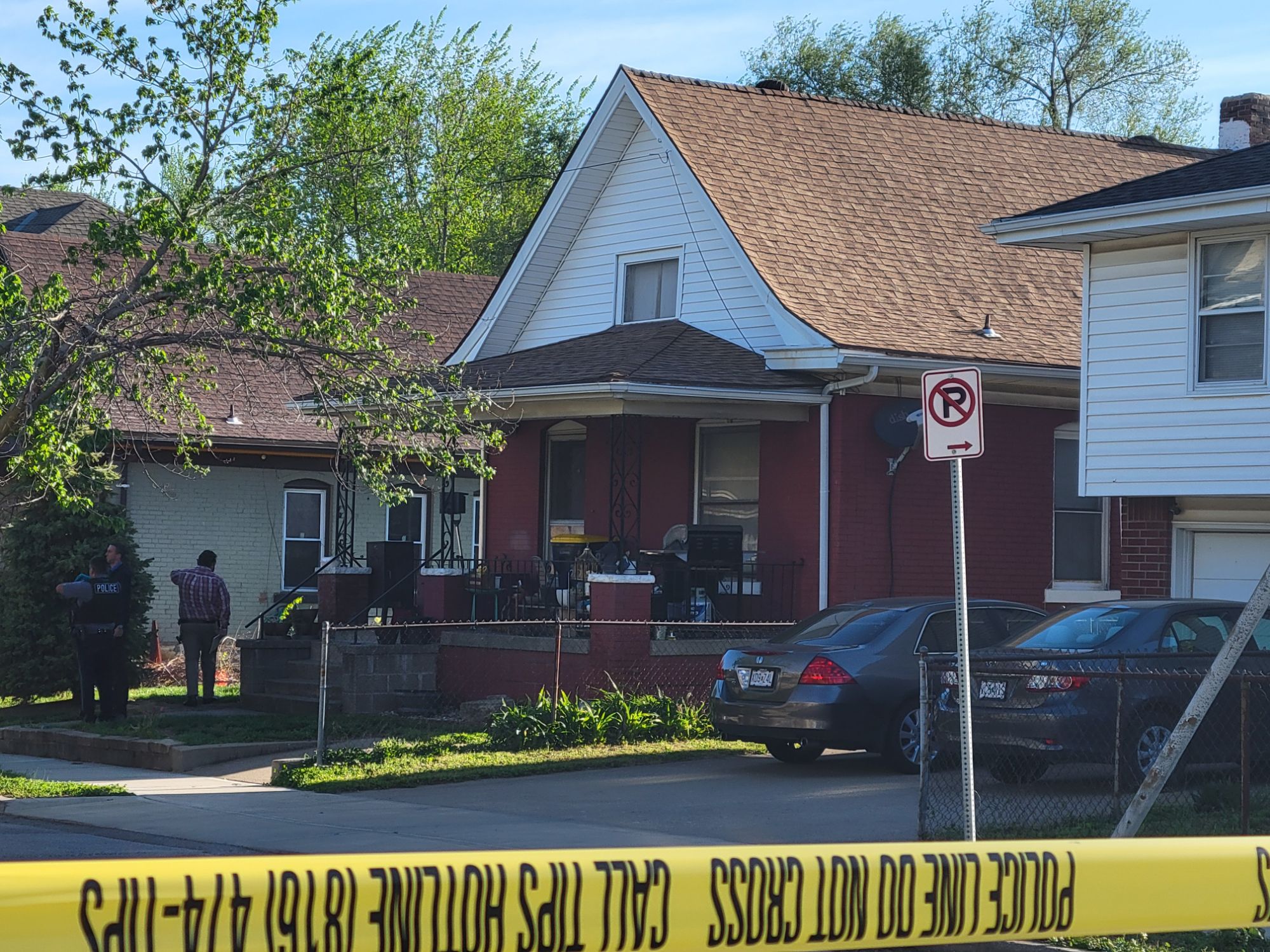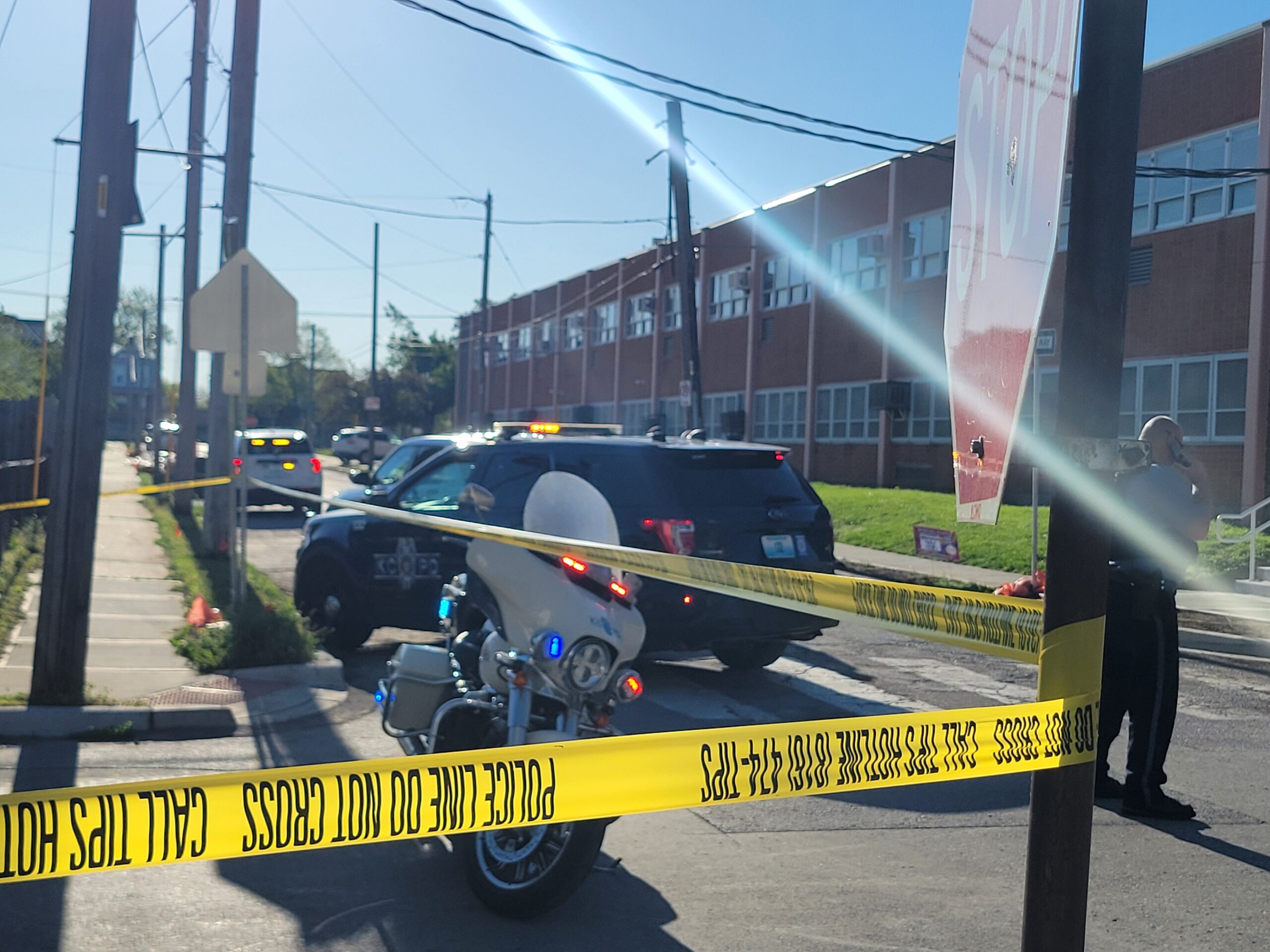
By Daisy Garcia Montoya, Education Reporter
Over 50 individuals gathered at RevED’s space on 2203 Lexington Ave. on Monday, May 22, in hopes of learning and better understanding the new Kansas HB 2350, which will go into effect on July 1.
The information session co-hosted by RevED and Advocates for Immigration Rights and Reconciliation (AIRR) called to members of the Latino and Hispanic community to receive information and resources regarding the new law. Given the limited space in-person, the event was also live streamed on Youtube, Facebook and Twitter for individuals to follow along.
Originally introduced in February, HB 2350 is a law that creates the crime of human smuggling and aggravated human smuggling with penalties involving a level five felony.
The bill defines the crime of human smuggling as “intentionally transporting, harboring, or concealing an individual into or within Kansas, when the person knows or should have known that the individual is entering into or remaining in the United States illegally.”
In order for someone to be penalized under this law, three circumstances must be met: the individual penalized knew or should have known that the person is undocumented and entered into or remains in the United States illegally, the individual will benefit financially or will receive something of value from the immigrant, and the individual knows or should have known that it is probable that the immigrant is being objected to exploitation for the economic benefit of another individual.
Immigration lawyer and Political and Community Outreach Director for UFCW Local 2, Monica Vargas-Huertas, who does not litigate, like who led the ‘What is the new HB 2350 law?’ portion of the presentation said that the law was written using a tone that is complicated and complex due to its vagueness.
“This is a very vague law and so that is why I am pointing out these three requirements because I want to be as direct as I can so that everyone can understand that right now we don’t have all the answers, nor do we have a yes or no,” Vargas-Huertas explained via Zoom. “This law was precisely made vague and its content opens up to various interpretations.”
Vargas-Huerta, who also serves as President of the Kansas Hispanic & Latino American Affairs Commission (KHLAAC), an ad-honorem appointment by Governor Laura Kelly, provided examples on what could and could not be considered a crime based on the current guidelines.
“Paying an individual to drive a member of the family from the border into the state of Kansas, with the agreement that the immigrant will work to pay off the debt, in this case, the driver could be accused of intentionally transporting,” Vargas-Huerta said. “A citizen offers to take his co-worker who is undocumented, to their place of work and the immigrant offers to pay for the gas. The citizen knowing that the immigrant is working for cash, ‘under the table,’ and paid poorly, could be penalized. On the other hand, if a wife or husband is driving their undocumented partner to church on Sunday without exploitation or any exchange of ‘something of value,’ this would not constitute a crime.”
After being introduced in February, the law passed the State House with an overwhelming majority of 96-26 then was approved in the State Senate in March with a favoring of 36-2. Governor Laura Kelly proceeded to veto the bill in April. Despite the veto, it once again went to the Chambers to override the veto with success with the House voting 85-39 in favor and the Senate voting 30-9.
Vargas-Huertas said that it is important for the Latino and Hispanic community to be aware of these laws because there are a lot of decisions being made at a state level that impact all those who reside in the state.
“Some of those decisions include what resources our children will receive at school and how they will be distributed, health and healthcare expansion, state-wide taxes, state security and within those themes are items that will directly impact the immigrant community,” Vargas-Huertas said. “In short, there are a lot of topics discussed, but only a few of them will capture the attention of the media and public opinion, due to its complexities.”
In addition to receiving background information on HB 2350, participants listened to a “Know Your Rights” workshop led by AIRR’s Program Coordinator Itzel Vargas-Valenzuela. Individuals learned the difference among local, state, and federal agencies as well as how to identify them, the rights they have under the United States Constitution, and how to react if stopped by a police officer.
“I just want to remind you that knowledge is power. I want to end this presentation and I want you to feel empowered with information. Hopefully that fear or uncertainness that you came in with is now courage. Maybe now you feel angry and want to do something. We all have a lot of power no matter what your status is,” Vargas-Valenzuela said. “I invite you all to get involved. Ask your family members, ‘Have you already registered to vote?’ There are a lot of elections coming up. Sometimes the local elections are more important, because everything that comes from the federal level goes down to the local level, like money and resources, and the local level decides what they do, so get involved.”
Before the session was over, individuals in-person and online had the opportunity to participate in a Q&A regarding HB 2350 and register to vote if they were able to.
As the session came to a close, some attendees expressed feeling better now that they had a deeper understanding of the bill and its implications.
“I have a family that is undocumented and I came to know how I can help them, know more about what in reality is happening, and to learn more,” a participant, who preferred to stay anonymous, said. “These events are important because a lot of people aren’t informed and think it’s a game. Sometimes even we think it’s a game because we think it’s false, so this is important because they are truly breaking down what is going on and what we can do.”
Chief Community Advocacy & Impact Officer Christy Moreno said that RevEd and AIRR are two organizations that bring support to families in Kansas and Missouri and given the community’s trust in them and RevEd’s physical space being known to the Latino and Hispanic community as a safe-space, they decided to host this event together.
“Just like families living in Kansas as the ones in Missouri, crossing the stateline border is part of a daily routine,” Moreno said. “The law does not only impact Kansas, it impacts all who enter Kansas as well. Get informed, get ready and get involved in the civic sphere because it is everyone’s obligation and is one that affects us all. RevED invites you to activate the power of your voice.”
Moreno says that no matter the background, all individuals in this country have the right to know the laws and policies that are being put in place that impact their lives and participation in society.
“We have a lot of Latino families in Kansas and Missouri that are of mixed status and it’s not only important to know the laws, but also to learn our rights and have a plan of action,” she continued.
More events on the topic of HB 2350 are underway with RevEd and AIRR in conjunction with KHLAAC, to provide a community workshop on June 8 to continue to bring awareness to the issue. For those interested in learning more or looking for more information, the livestream for the informational session can be found here: https://www.youtube.com/watch?v=MkKweGOiyIA.



















